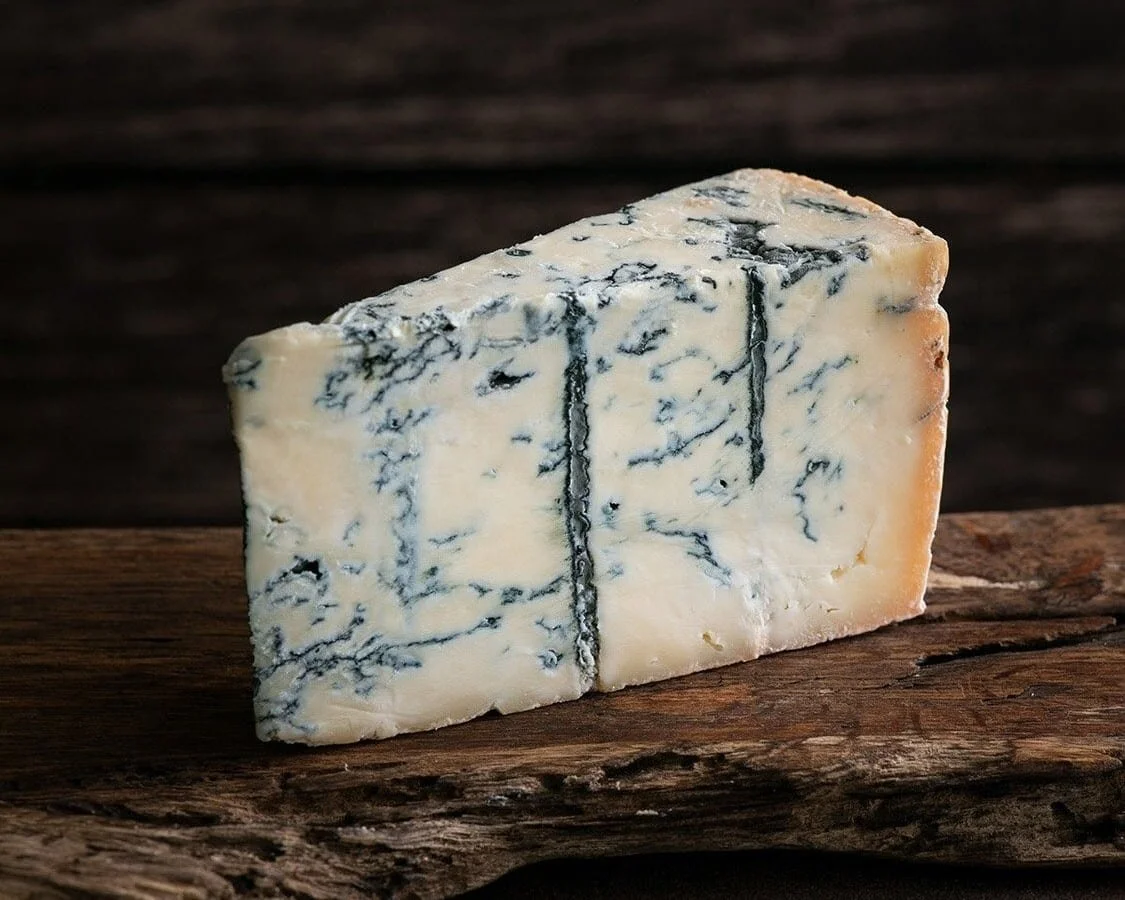Can I Eat Blue Cheese During Pregnancy?
At a Glance:
❌ Blue Cheese from Unpasteurized Milk – Avoid
This version carries a high risk for listeria contamination and should be avoided during pregnancy, especially if the cheese is soft and ripened.
✅ Pasteurized Blue Cheese – Safe with Care
Blue cheese made from pasteurized milk is generally safe if it has been properly stored and consumed before its expiration date. Cooking it until steaming hot further reduces any residual risk.
Understanding the Concerns
Bold, creamy, and slightly tangy, blue cheese is a favorite for salads, burgers, and cheese boards. But when you’re pregnant, questions arise about whether its strong flavor comes with hidden risks. The good news? Blue cheese can be safe to enjoy during pregnancy—with a few important precautions. In this post, we’ll explain the risks associated with blue cheese, how to identify safe options, and tips for eating it without worry.
Blue cheese gets its unique texture and veins from mold cultures added during production. These soft, moist conditions—especially when made from unpasteurized milk—can create a favorable environment for Listeria monocytogenes, a bacteria that can cause listeriosis.
Why Listeria Is a Concern During Pregnancy:
Pregnant individuals are up to 10 times more susceptible to listeriosis, which can cause:
Miscarriage
Premature delivery
Stillbirth
Severe illness in newborns
While listeriosis is rare, it can have serious consequences—making it especially important to evaluate foods like soft cheeses.
Assessing the Risks
Concern: Blue cheese is often made from unpasteurized milk and contains moisture that may allow Listeria monocytogenes to grow.
Risk Level: Avoid if unpasteurized. Blue cheese made from pasteurized milk is considered safe when stored properly and consumed fresh.
Safe Practices: Always check for "pasteurized milk" on the label. When in doubt, skip it or cook it thoroughly to eliminate risk.
Making Safe Choices
If you love blue cheese, here’s how to include it in your pregnancy diet responsibly:
✅ Check the Label Carefully
Only choose products clearly labeled “made from pasteurized milk.” This applies to both domestic and imported brands.
✅ Avoid Crumbled Blue Cheese at Salad Bars or Delis
Cheese stored in open containers may be exposed to cross-contamination or improper refrigeration. Stick to sealed, pre-packaged options.
✅ Cooked Blue Cheese Is a Safer Bet
Dishes like blue cheese pasta sauce, blue cheese-stuffed chicken, or blue cheese-topped pizza are typically heated to temperatures that kill harmful bacteria—making them safer during pregnancy.
A Pregnancy-Safe Recipe Idea
Blue Cheese & Pear Flatbread (Baked)
Ingredients:
1 flatbread or naan
1/2 ripe pear, thinly sliced
2 tablespoons pasteurized blue cheese
1/4 cup shredded mozzarella
A handful of arugula (optional)
Olive oil & honey for drizzling
Instructions:
Preheat oven to 400°F (200°C).
Place flatbread on a baking tray. Top with sliced pear, mozzarella, and crumbled blue cheese.
Bake for 8–10 minutes, until cheese is melted and bubbly.
Remove from oven, top with arugula, and drizzle with olive oil and a touch of honey before serving.
Conclusion: Enjoying Blue Cheese with Confidence
Blue cheese doesn't have to be off-limits during pregnancy. The key is choosing pasteurized versions and avoiding soft, unpasteurized cheeses. When in doubt, cooking blue cheese until hot can offer added reassurance. With these guidelines, you can continue to enjoy bold flavors safely as part of a balanced pregnancy diet.
As always, consult your healthcare provider if you’re unsure about a specific cheese or product. A little awareness can go a long way toward keeping both you and your baby healthy.
Disclaimer: This blog post is for informational purposes only and does not replace professional medical advice. Always consult your healthcare provider for personalized dietary guidance.
References:
FDA:
Mother to Baby:
